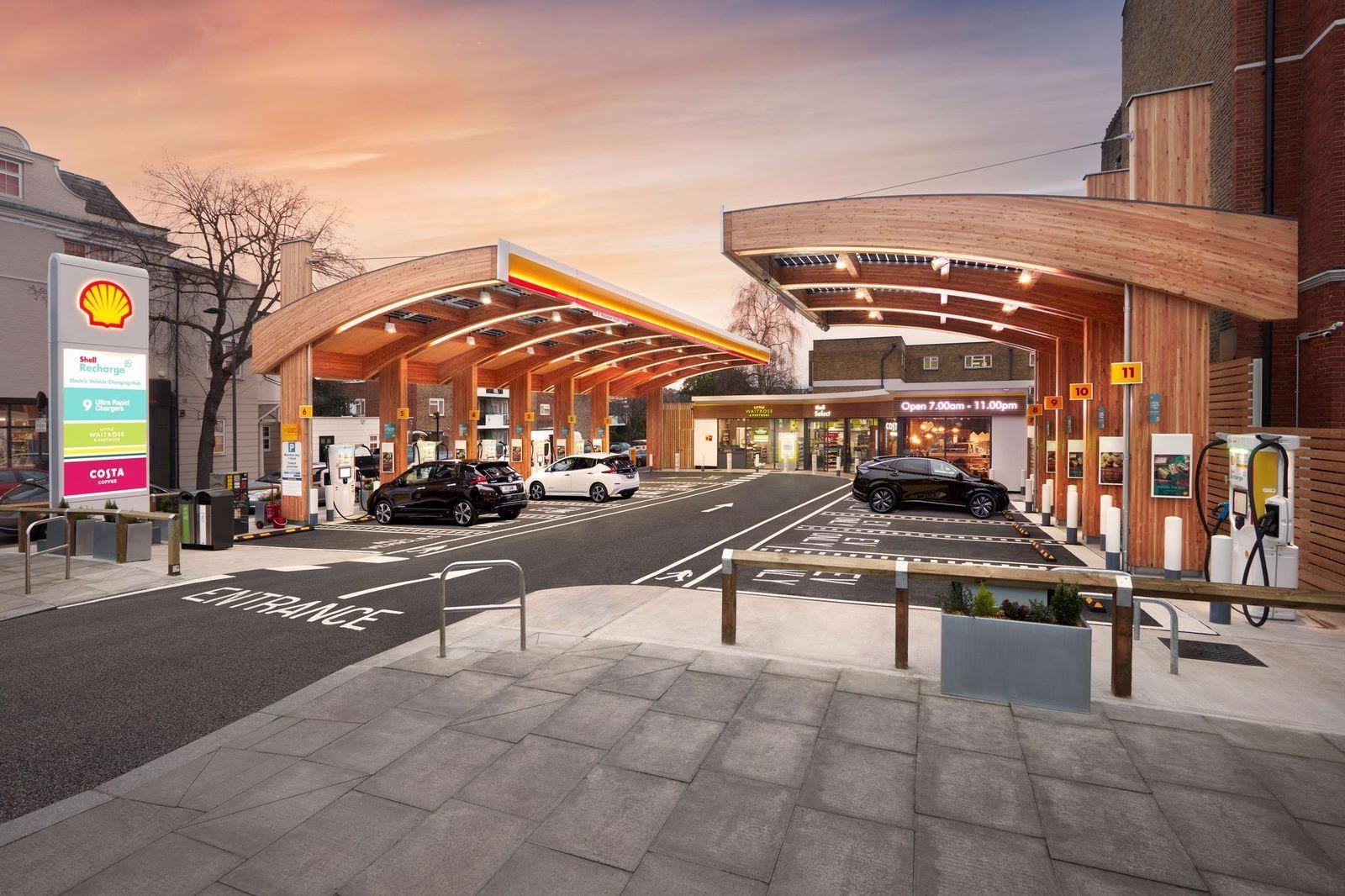Propelair® is pleased to announce that its water-saving toilets have been installed at Shell’s first EV charging hub in the UK. Three units are available at the site in Fulham, London.

Image Credit: Propelair
At this site petrol and diesel pumps have been replaced with ultra-rapid charge points. The site has a comfortable seated area for waiting EV drivers, a Costa Coffee store and an extensive Little Waitrose & Partners shop.
Designed and manufactured in the UK, Propelair toilets use on average 84% less water than standard models, combining just 1.5 litres of water with a high-speed jet of air to leave the pan super-clean in one flush. The closed lid improves hygiene by reducing airborne germs such as COVID-19 by up to 95%.
Propelair’s patented technology brings big savings in water, energy and cost to out-of-home venues, where toilets can be flushed hundreds of times daily. This reduces water and sewage bills so much, the toilet pays for itself in under three years in most cases. Payback in busier sites can be achieved in months.
A growing list of some 200 commercial and public-sector customers are saving nearly 1 billion litres a year – enough to fill about 350 Olympic pools – while benefiting from enhanced green credentials.
David Hollander, CEO of Propelair, said: “We’re very pleased Shell has taken our innovative technology to EV drivers. Our technology saves water immediately – gains that continue to accumulate by the day, year on year. With the technical innovations we’re working on, those savings will be even greater.”
Water use contributes to around 6% of UK carbon emissions, according to experts. Boosting water efficiency can play a significant role in addressing the climate crisis. Population growth, rising demand and climate change are predicted increasingly to affect future water resources in the UK, and action to increase water efficiency is needed to avoid shortages by 2050.
A leadership team recruited in 2019, led by ex-Dyson UK MD David Hollander, has grown Propelair’s sales pipeline more than 30 times. The lockdown did not help sales in the short-term, when the UK Government became a shareholder in the business through its Future Fund, but has heightened interest in sustainability and hygiene. Easing restrictions has led to a surge in sales.